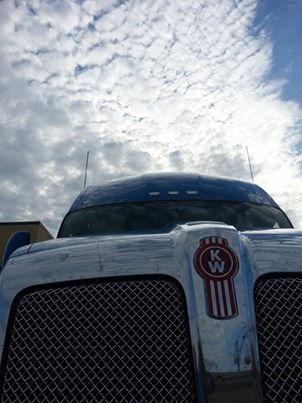Stephen Vincent Benet wrote a poem entitled “I Love American Names” a tribute to the interesting names we have given our communities throughout the United States. As I travel, I try to learn as much as I can about the community that I am working in. As you deliver across our nation I encourage you to get out of the truck and investigate this great land of ours.
 Recently, I had the privilege to visit the great state of Pennsylvania. I knew it might be
Recently, I had the privilege to visit the great state of Pennsylvania. I knew it might be
a long trip when the sign at the state border read, Pennsylvania Welcomes You. In
smaller letters it should have read, “All highways under major construction.” I don’t
know what amount of money is being spent for highway improvements, but it has to be
more than most states have ever invested in their roads. The Allegheny mountain scenery
is great, the people are friendly and black bears roam the woods like deer. Philipsburg is
also the birthplace of the Philips Head screw.
My wife and I were traveling through Montana and entered the small town of Wibaux.
Immediately, we tried to guess how to pronounce the name of the town. I went with Y-box
and she guessed Y-baa. To settle the dispute and satisfy our thirst, we pulled through a
fast food restaurant and ordered a drink. As our young, pimply faced server handed us
our drinks I asked her, “How do you pronounce the name of this place.”
She looked at us strangely and then very slowly she said, “ Mac-Don-alds.”
The town name is pronounced Wee-Bow. I spent a few days in Cumberland, Maryland. Cumberland overlooks the Potomac River and originally served as a wilderness fortress as the United States expanded westward.It is named after the Duke of Cumberland who was the Captain General of the British Army in the 1700’s. George Washington even spent one winter there. You can still visit the cabin where he stayed.
Liberal, Ks had a rancher in the early days who allowed folks traveling west
to stop and water their animals. Many folks were heading west as our nation
expanded, but there is very little water in this part of the world. Most early settlers
decided to capitalize on the shortage of water. Ranchers charged those who were passing through for watering their animals and filling their containers for the remaining trip.
Because our local rancher didn’t charge, his place became quite popular. Traveling
parties knew he was very liberal with his water.
